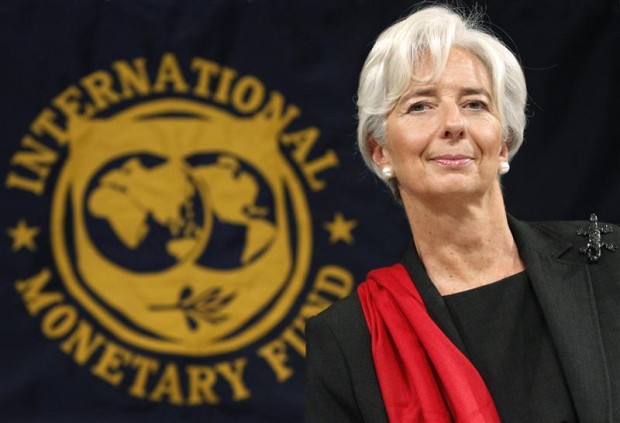Global economic growth will be disappointing in 2016, says IMF

The Guardian
Global economic growth will be disappointing next year and the outlook for the medium-term has also deteriorated, the head of the International Monetary Fund has warned.
The IMF managing director, Christine Lagarde, said the prospect of rising interest rates in the US and an economic slowdown in China were feeding uncertainty and a higher risk of economic vulnerability worldwide.
Added to that, growth in global trade has slowed considerably and a decline in raw material prices was posing problems for economies reliant on commodities, while many countries still had weak financial sectors as the financial risks increase in emerging markets, she said.
“All of that means global growth will be disappointing and uneven in 2016,” Lagarde said, noting that mid-term prospects had also weakened as low productivity, ageing populations and the effects of the global financial crisis dampened growth. In October, the IMF forecast that the world economy would grow by 3.6% in 2016.
Writing in German newspaper Handelsblatt, Lagarde said the start of a normalisation of US monetary policy and China’s shift towards consumption-led growth were “necessary and healthy” changes but needed to be carried out as efficiently and smoothly as possible.
The US Federal Reserve hiked interest rates for the first time in nearly a decade this month and made clear that was a tentative beginning to a “gradual” tightening cycle.
There are “potential spillover effects”, with the prospect of increasing interest rates there already having contributed to higher financing costs for some borrowers, including in emerging and developing markets, Lagarde said.
While countries other than highly developed economies were generally better prepared for higher interest rates than previously, she was concerned about their ability to absorb shocks, she said.
Emerging market companies with debt in dollars and revenue in sinking local currencies could struggle as the Fed begins what is expected to be a series of interest rate increases.
Lagarde warned that rising US interest rates and a stronger dollar could lead to companies defaulting on their payments and that this could “infect” banks and states.
But she said the risks associated with these changes could be overcome by supporting demand, maintaining financial stability and reforming structures. “Most highly developed economies, except the USA and possibly Britain, will continue to need loose monetary policy, but all countries in this category should comprehensively factor spillover effects into their decision-making,” Lagarde said.
How to submit an Op-Ed: Libyan Express accepts opinion articles on a wide range of topics. Submissions may be sent to oped@libyanexpress.com. Please include ‘Op-Ed’ in the subject line.
- Gunman killed after shooting near Israeli embassy in Amman - November 24, 2024
- Kremlin: Russian weapons development kept under wraps - November 24, 2024
- Libya’s Attorney General calls for swift action on rights investigations - November 24, 2024


